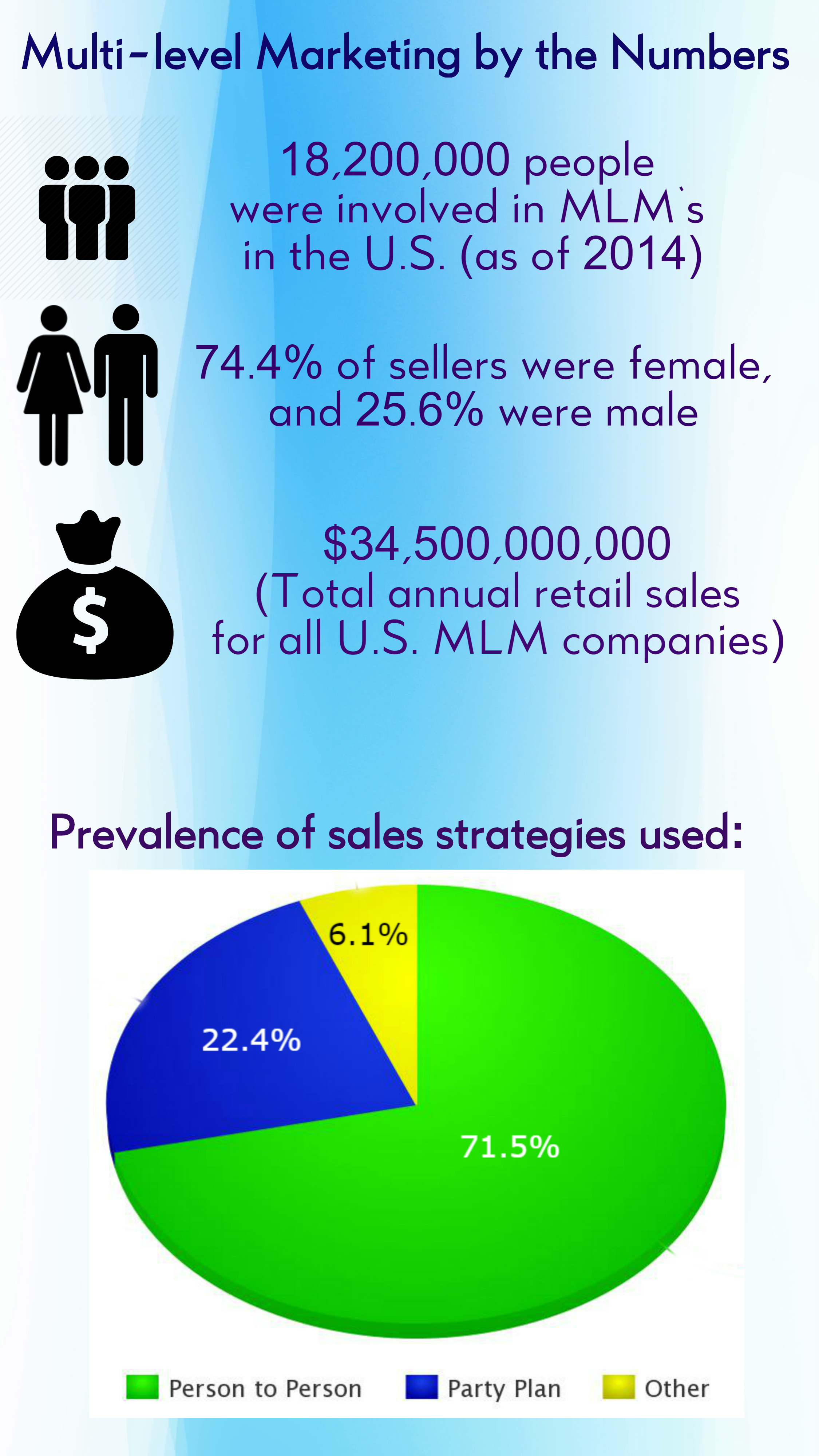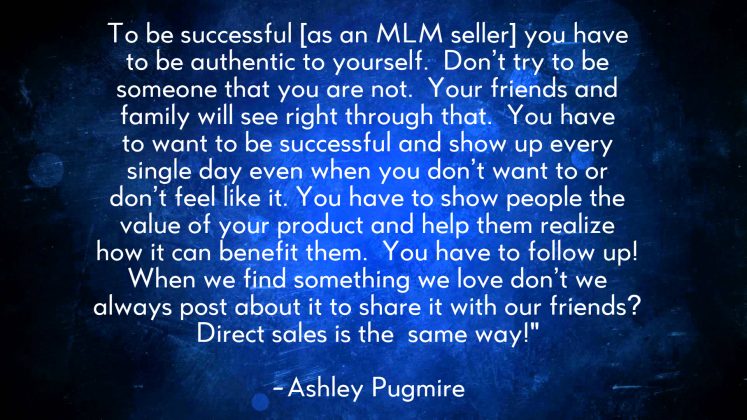Utah has become a hotbed of multi-level marketing (MLM) companies in recent years, and much of this activity can be attributed to Utah’s demographics: 60 percent of residents are Mormons. At least eight Utah MLM companies were founded by Mormons, showing the close connection between members of the LDS faith and this type of business.
Because Utah has more MLMs per capita than any other state, very few people manage to escape pitches from friends, family and neighbors regarding some new product sold through multi-level marketing, where sellers earn an extra kick-back bonus for each new seller in their “downline.”
BYU School of Family Life professor Jeff Hill has specialized in research that examines finding harmony between paid work and family life. He said a lot of people get involved with MLMs because they think it is “the fast way to make money.”
“Mormons in particular have a lot of faith, and that is sometimes coupled with the attitude that if you’re keeping the commandments, you’ll be blessed financially. With MLMs, there’s always people at the top that are very rich and successful,” Hill said.
Usually, these people “at the top are credible and good people,” Hill said, causing the belief that success is achieved through “getting rich” and “spreading the gospel” attached to their MLM product.
Many Mormon mothers, in particular, sign up with MLM companies because they want to feel productive and bring in extra income, all while balancing being a stay-at-home mom, according to multiple interviews conducted by The Daily Universe.
This slideshow comprises quotes taken from interviews of LDS women who run MLM businesses. (Marinda Risk)
“I feel like (selling for an MLM) was a way for me to straddle the influence of my local culture pulling at me to work and my church culture pulling me home,” said Kelly Eddy, an MLM sales representative. “Every non-LDS friend I have works outside the home, so I think MLMs are appealing because they give you a way to say, ‘Hey, I’m contributing too!'”
Hill cautioned that although MLMs can seem appealing as a way for stay-at-home-mothers to earn money, it’s important to focus on the value of the product instead of recruiting a “downline” of sellers.
He said it would be unethical to have most of the money in an MLM company coming from the tiered system of recruiting instead of product sales.
Hill encouraged sellers to look at the actual benefits of the product and not just the potential placebo effect of certain items commonly sold by MLMs.
Families need to consider the time and resources available to them alongside their monetary concerns, according to Hill. Research shows that having both parents in a family working full-time often begins to have a negative impact on the family and children, but part-time work for the stay-at-home parent can often have no negative family impact and can bring in extra money, Hill said.
“What every family needs is resources, time and energy. And what each family needs to do is optimize the amount of time that is spent gathering resources such that they have sufficient time and energy for the nurturing that happens in the family,” Hill said. “When either men or women are involved in paid work to the degree that it compromises the amount of energy and time available for nurturing in their home, it’s a problem.”
People considering selling for MLMs should also take into consideration some of the retention numbers for sellers, according to the Federal Trade Commission and MLM researcher Jon Taylor.
Taylor found the following in his 2008 research study:
Within the first year of representatives’ selling (for most companies surveyed), a minimum of 50 percent of sellers dropped out.
After five years of representatives’ selling, a minimum of 90 percent dropped out.
By year 10, only those within the top ranks of the company were still selling — meaning at least 95 percent of sellers dropped out.
Despite these statistics, many people find success selling with MLMs, and this is part of MLM companies’ impressive growth in numbers each year. People hoping to sell for an MLM company can benefit from checking the individual company’s statistics and rates of seller retention. From that data, a potential seller can assess whether he or she is committed to selling or is likely to join the ranks of those who quickly drop out.

Ashley Pugmire began selling cosmetics with Younique, a Utah-based MLM company, in 2014. She worked hard and quickly rose to the top 2 percent of sellers within the company, and she still sells for them today. She said being a seller gave her a greater purpose than being “just a mom” and helped her feel empowered as a leader.
However, Pugmire also said she often found herself making her family and household responsibilities a second priority to the business, which had an impact on her home.
It’s important to find balance in running an MLM business from home, according to Pugmire.
She also said it can sometimes be difficult to be at the top of a long “downline.” For example, she had 400 members of her downline leave because of problems caused by a member on her online training pages.
She built up her business over time, not by being too pushy but by being genuine as a person and about the products she sells, according to Pugmire.
“When I first started, I was adding people to my Facebook sales groups without permission, and I was all ‘buy buy buy!’ Now, I’m all about sharing testimonies of others and letting the products really speak for themselves,” Pugmire said. “Building real relationships with people and knowing them on a personal level allows them to trust you and lets them know you aren’t just being friends with them to get a sale.”








